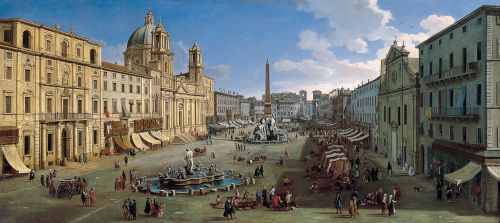Summer School

General description
Up until the 18th century, much of Western philosophical thought about perception and agency was fundamentally shaped by a background assumption of robust realism about powers as genuine properties in their own right. Powers are properties which do not merely determine the present character of an object, but also determine how it is likely to behave, or will behave, in the future or under specific circumstances (e.g. fragility or elasticity). The historically most influential power-based metaphysics has been Aristotleís ontology, which emphatically placed powers among the bona fide properties of substances. On the basis of this ontology, the Aristotelian tradition considered perception and human agency as essentially consisting in the exercise of the agentís mental powers.
The Aristotelian tradition lost its claim to be the mainstream philosophical view when it came under heavy criticism by Hume and the empiricists in the 18th century. Since the empiricist tradition came to strongly influence Anglo-Saxon philosophy and, by consequence, analytical philosophy in general, and since Aristotelian powers were considered incompatible with the overall 'scientific picture of the world', also power-based theories of perception and action widely fell into disrepute in the 20th century.
However, in the last two decades there has been a significant revival of interest in powers in contemporary metaphysics, especially in the Anglo-American philosophical debate. Since then, it has become increasingly clear that a power-ontology may be particularly well suited to the world-view suggested by the natural sciences. This revival of realism about powers not only opens up fascinating new perspectives for metaphysicians and philosophers of science. It also puts back on the philosophical agenda power-based accounts of perception and agency, which were long discredited. While the prospects for such theories and their applications are beginning to be hotly debated, the discussion is still very much in flux.
This intensive Summer School will be devoted to the study of such power-based theories of perception and agency in the light of the most recent developments in metaphysics. By investigating these issues, we will introduce interested graduate students and early-career researchers to a field which is developing rapidly and in novel ways. Additionally, we want to give young philosophers whose interests in questions concerning powers, agency and perception have hitherto been mainly historical a chance to engage with a fascinating area of contemporary analytic philosophy.
The Summer School will be followed by a two day conference with five internationally renowned philosophers working specifically on powers and the application of power ontology in different areas of philosophy (John Heil, Chris Martin, Stephen Mumford and William Jaworski). During the Summer School, in addition to the lectures, the students will have the chance to particularly engage with the work of these philosophers and work out comments on them to be discussed during the conference.

Structure and schedule
Each day of the Summer School will feature an interactive 3 hour lecture in the morning (given either by Anna Marmodoro or Erasmus Mayr). In the afternoon, there will be a 2 hour group work session for the students. One important aim of these sessions will be to discuss and develop comments on the work of the philosophers, who will be speaking at the conference. To view the full schedule please visit our Teaching Schedule page.
For details of the reading list please visit the reading list and additional resources page. For detailed biographies of the Summer School lecturers please visit our biographies page.
How to apply
To apply for a place in the Summer School and Conference please email your CV, a one page motivation statement, and a letter from a supervisor or academic colleague to Giorgia Carta at powers@philosophy.ox.ac.uk by the 3rd of July 2015.
